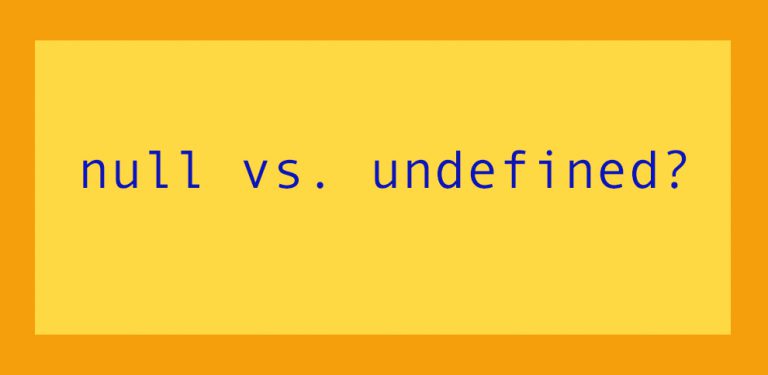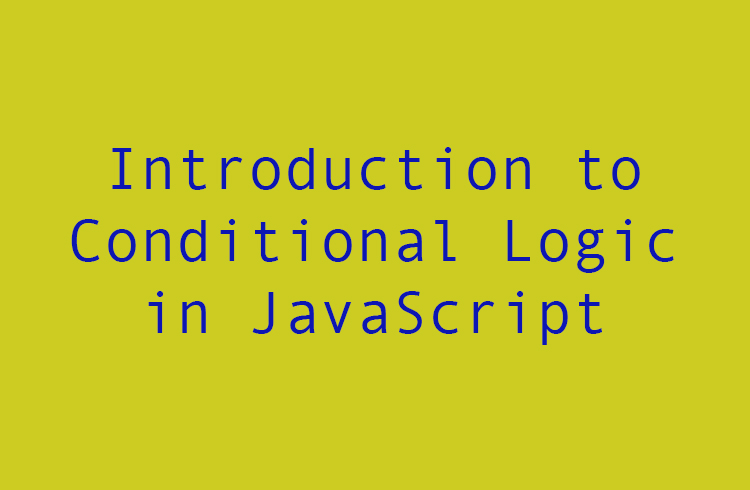Best Way to Learn JavaScript in 2019
With all the updates to the JavaScript language during the past few years, you may be wondering about the best way to learn JavaScript in 2019. If you have experience in another programming language such as C# and want to learn how to use Angular within the C# .NET framework, then you can start by learning TypeScript. This post, however, is geared towards those who are new in web development and assumes you have no prior programming experience.
If you know enough HTML and CSS to build a basic website, then this post will guide you on the next steps of learning JavaScript so that you can become a front-end web developer. If you do not yet have enough solid footing in HTML and CSS, then check out How to Learn HTML and CSS Fast.
What is ES6?
ES6, officially called ECMAScript2015, was released in June, 2015 around the time I started to learn JavaScript. ECMAScript2015 is the sixth edition to the JavaScript language, which is why it is also called ES6. Because the changes to the language’s syntax were significant, web developers had to put in some time to learn this new syntax. The word syntax, if you are not familiar with it, refers to the rules that programmers are required to follow to create their statements when writing a program.
The challenge for me when I was trying to learn JavaScript was that the language had been updated, but all the existing books and courses on JavaScript taught ES5 syntax. As a beginner, I was initially overwhelmed by the new syntax and extensive updates. Slowly, though, I began to spend time reading through the MDN documentation on ES6 to get a handle on how to re-write variables, functions, objects and new array methods. If you are not familiar with these terms, do not worry. Once you immerse yourself in a good course on JavaScript that teaches the ES6 syntax, you will learn these programming definitions soon enough and learn how to use them to write JavaScript code.
While I initially found learning ES6 syntax overwhelming, I have since come to learn that updates to any programming language are to be expected and that there is always something new to learn for JavaScript, whether it is a new part of the language or a new library or framework.
Why Learn ES6?
Now that the language specification for JavaScript has been updated, web developers do not typically use ES5 to build new web apps. If you want to work as a web developer, your employer may want you to know ES5 so that you can maintain existing web applications, and if that is the case, it will be easy enough for you to pick up ES5, especially if the course that you take focuses on ES6 but addresses how the syntax is different from ES5, such as Andrei Neagoie’s The Complete Web Developer in 2019: Zero to Mastery. Once you are asked to build or contribute to a new web application, you will be expected to develop this application using ES6 syntax, and eventually, we will likely see fewer web apps that use ES5.
Courses are a Better Option Than Books
If you have been following my website for some time, you probably know that I have narrowed down my ongoing education to four different platforms that include Safari Books Online, Udemy, Coursera Specializations and Udacity nanodegrees. All of these options have a different purpose depending on how deeply I want to delve into a topic, and you can learn more about them on my Resources page.
If you truly want to work as a front-end web developer and plan to concentrate on JavaScript, however, I would, at least for now, encourage you to stick with Udemy courses. The very best JavaScript instructors I have found for ES6 are all on Udemy. I know that sounds like an extreme statement, but as someone who is intimately familiar with the content on Coursera, Udemy, Udacity and Safari Books Online, it is my contention that if you are new to programming and you want to learn JavaScript, your best option is to either a front-end web development bootcamp that includes HTML, CSS and JavaScript or a JavaScript bootcamp if you already know HTML and CSS.
Here is my evaluation on why I think Udemy courses are the best option:
- While Udacity has JavaScript courses that cover ES6 that are quite good, their specialty leans towards Python and Autonomous Systems, and unless you are enrolled in one of their nanodegrees, you won’t be able to get much practice building projects that require JavaScript.
- Coursera has very few specializations and courses that teach JavaScript in general. Considering that the subject matter leans towards computer science curriculums in academia, this makes perfect sense. Coursera is a better option for those who wish to learn C, Java, Python or algorithms for computer science.
- Safari Books Online has a number of excellent books and video-based learning paths for experienced web developer professionals who already know how to program, but I have searched their site extensively for resources on ES6 that are geared for beginners and could not find that many options. There is one book I found one learning path that received low reviews, so I cannot recommend it.
- Udemy has a number of excellent, in-depth, video-based courses that teach JavaScript with ES6 syntax. Because there are so many, I wrote this guide on how to choose a JavaScript or front-end web development bootcamp that is right for you.
Start with a Course that Specializes in ES6 Syntax
Typically, I recommend that aspiring web developers start with Andrei Neagoie’s The Complete Web Developer in 2019: Zero to Mastery, which I also mentioned above. I like his course because right away, he helps you think like a web developer and shows you how to do research online in order to solve technical problems. A number of students who have taken his course have gotten hired as web developers, and there is a Slack channel for course participants. And because Neagoie now has so many students, he has hired a teaching assistant who is super responsive and helpful.
What To Do if You Get Hopelessly Stuck
For others, though, Neagoie’s course, especially the part that covers DOM manipulation, will ramp up a bit too quickly, and if you discover that is the case for you, I encourage you to check out Colt Steele’s The Web Developer Bootcamp. This is the primary course I used to learn JavaScript, and what I found most helpful was the large number of exercises Colt provided that allowed me to practice. He taught students how to code at one of the major bootcamps and has a knack for breaking down programming problems and logic into small, digestible chunks. Colt’s background as an educator really comes through with his teaching style.
My only hesitation in recommending his bootcamp is that it does not cover ES6, so you will need to learn it after taking his course. This is how I learned JavaScript, and it is not a bad way to learn it if you find that you need to move more slowly than the other bootcamps. In Which is The Best Web Developer Bootcamp for You, I discuss the advantages and disadvantages of several popular front-end and JavaScript bootcamps so that you can find the right Udemy course(s) to fit your needs.
If you have any questions after reading the guide, please feel free to leave a comment or contact me at laura.white@youcanlearnhowtocode.com.






i have read all of this informative information and i still do not understand JavaScript lol its like a foreign language to me, seriously. How quickly can you learn JavaScript on average? Also can you do more with being able to code yourself instead of just using wordpress to do it for you?
Yes, absolutely — you can definitely enhance a WordPress site by adding your own customizations if you know HTML, CSS, JavaScript and PHP. I tell people that they should study JavaScript for at least 9 months in depth if they want to get a job as a web developer, but everyone’s timeframe is different. It took me longer because I was not strategic with my approach to my JS education, and then I needed to ramp up and learn ES6. Other people might be able to learn it more quickly if they can put in some serious time.
Hi! Thank you for sharing your experience learning Javasript. I can imagine how it was having all the training available teaching ES5 syntax and wanting to learn ES6 syntax. I’m glad to hear you broke through! And thankfully for us, we’re already in 2019 and new training in ES6 syntax is available.
I’ll take the path you took. I’ll do Colt Steele’s The Web Developer Bootcamp first and after that I’ll do Andrei Neagoie’s The Complete Web Developer in 2019: Zero to Mastery. Do you believe it’s reasonable to set a goal of finish both courses in 6 months?
You’re welcome, Henry! You are welcome to give that path a try. I took Colt Steele’s web developer bootcamp and then Stephen Grider’s ES6 course. Andrei Neagoie’s course came out more recently, and he teaches ES6 from the beginning. You might be able to learn it that way, but his course ramps up more quickly than Colt Steele’s, so if you have trouble, you can take Colt Steele’s course. Best of luck to you, and feel free to contact me if you have any questions along the way.
Thanks for the extensive look at options to learn how to program using JavaScript in 2019. Things change so fast, and it is really helpful to be able to come by this website and get the latest and best advice on where to get the training that will provide the skills you will need and also from whom to take the courses from.
Everyone can learn to code, but if you are not up-to-date with the coding updates, you may very well learn something that is not going to help you for the jobs out there, or you may have to get some additional training, as you mention. In general, to keep up it is a constant learning process.
The ES6 version of Javascript is what we all have to learn as it is the future, so advising students to use the Udemy platform as it has the best instructors with classes that teach it best is a good bit of advice that I appreciate. It will save me a lot of time, no doubt.
What sort of time-frame are we looking at for these courses, and what should we expect to pay? I have seen sales and specials on the Udemy courses in ads but never have taken any through that platform as of yet. They have a pretty solid reputation from what I gather.
Hi Dave,
Yes, Udemy has a solid reputation. One of the reasons is that there are a number of instructors who make their living teaching on Udemy, so they are highly motivated to create courses that are well curated and that really help people reach their goals. Personally, I have learned a number of skills through highly rated instructors on the platform.
If you wait for a sale, you can typically pick up a course for 15 – 20 USD. It’s important to get courses that are rated highly, and since there is no shortage of them, I try to let people know which ones helped me the most.
Regarding time frame, there are some people who can learn HTML, CSS and JavaScript and land a job as a front-end web developer within 6 months or so. It depends on how much time you have to put into your studies and how quickly you pick up the skills. Personally, I studied JavaScript for 18 months or so before I got comfortable with it and even then I wasn’t quite ready to call myself a web developer! But, if you write code every day, that’s what you are.
Once you do that, you can put in a bit more time and either concentrate on the front-end, but the trend I am seeing is demand for full-stack engineers. The front end is make up of HTML, CSS and JavaScript, but your backend can be anything from Python to PHP, Java or even JavaScript or C#… The list goes on, but if you learn one or two popular backend languages like Python and Java AND have front-end skills, you’ll find that you will be in demand.
If you have further questions about courses that will add to your goals, please feel free to reach out to me.
Laura